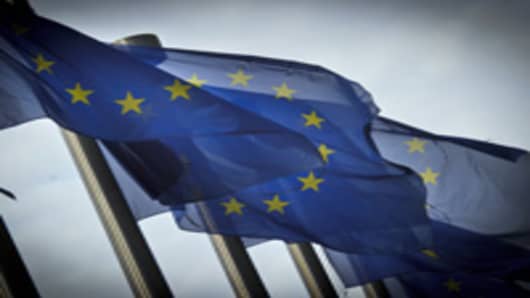The euro zone economy shrank in the April to June period, the European Commission's statistics agency Eurostat said on Tuesday, as businesses and consumers reined in spending as the region's three-year-old debt crisis flared up.
The agency said gross domestic product (GDP) shrank by 0.2 percent in the second quarter compared with the quarter before, and by 0.4 percent compared with the same period last year.
The flash estimate was exactly in line with the average economists expectations as polled by Reuters.
A decline in GDP at the end of last year levelled off in the first quarter of 2012 as exports offset a plunge in investment and inventories to produce a flat reading, saving the bloc from a technical recession.
Euro zone countries France and Germany released better than expected second-quarter GDP data on Tuesday, as investors looked for signs that Europe's core might also be feeling the effects of the region's debt crisis.
France's GDP remained unchanged in the second quarter as the country's statistics agency INSEE reported zero growth.
The French economy has failed to grow for the three consecutive quarters prompting fears that the Republic could be heading for a recession . For now, the economy has avoided one.
Arnaud Scarpaci, Fund Manager at Agilis Gestion said the numbers were encouraging because business investment rose 0.7 percent and some big French companies were still investing.
"This figure offers some respite to the Francois Hollande government in order to cut the budget deficit and bridge the gap with Germany," Scarpaci told CNBC from Paris.
In Germany, second-quarter GDP rose 0.3 percent quarter-on-quarter versus a Reuters forecast for a 0.2 percent increase.
Investors were keenly watching both releases for signs that Europe's core is faltering due to problems that have affected peripheral countries such as Greece, Portugal and Ireland.
European stocks opened higher after the data release, reversing the previous session's dip. Investors are likely to take some comfort from the better than expected growth for both France and Germany.
The euro, which was strengthening versus the dollar before the data release extended its gains, trading at 1.2364 at 7:50 a.m. in London.



